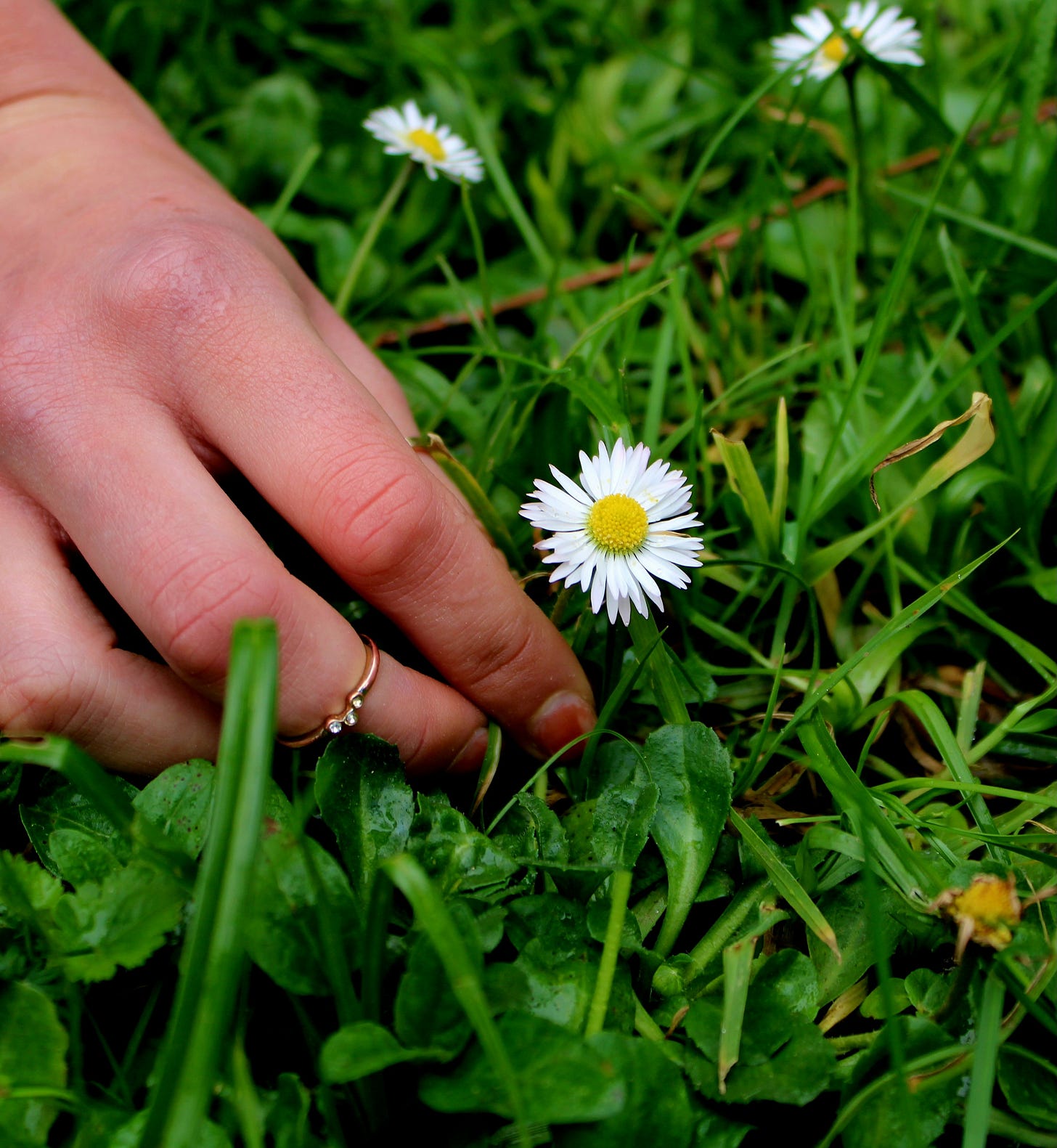Hope you’ll forgive my newsletter arriving a day late this week, but it’s in honour of International Women’s Day, and in response to the Let’s Make a Daisy Chain, Flower Crown - an invite to make daisy chains for the girls and women who walk behind us, beyond us and alongside us
Since I left HMP Low Newton, the women’s prison where I worked for twenty-five years, for me, International Women’s Day has become, a day on which I remember the women I worked with in the prison. Not that I don’t think of them at other times, I do. But on this day I remember with sadness, that little has changed, that we still lock away women who are themselves victims of the worst crimes.
I remember too, their resilience, their laughter and their generosity to me. I remember how easily forgotten they are , how invisible, how there but for the grace of God go I… go we…
I forget many of their faces but I hear their voices still
Extract from my book, Going in With Flowers - the poetry of prison
When I think of the prisoners at Low Newton, I barely see their faces; they are shadowy and pale like flowers in a garden at night, bleached of colour. Like a drift of evening primrose, they float ghostly and insubstantial before my eyes. But their voices; their voices sing out. I hear them loud in my ear. I remember their words and I carry them still inside me. Looking back, I see how important those words were, and how the only power the women possessed was voice and the telling of their story.
Women in prison use their voices to question, protest, kick off, speak out, call out to greet you as the day begins, call to each other, whisper in compassion, laugh and sing. In voice lies identity and power. As Margaret Atwood says, ‘A voice is a human gift; it should be cherished and used. Powerlessness and silence, go together.’
Even when I couldn’t see the women of Low Newton, when they were behind the door in their cells, or locked up for the night, I would still hear them. Behind the prison mask their voices rose in a company. Like the chorus of a Greek tragedy, they participated in and commented on the drama, refusing to be silenced.
Prison has many ways of restraining both those who live there and those who work there. By its closed nature, and with its emphasis on security and secrecy, it attempts to gag. It does not encourage you to speak out or be heard. Those who do are branded as troublemakers or manipulative. In my early days working at Low Newton, when the restraint was greatest, I liked nothing better as I came on the Wing to hear a cleaner, down on her hands and knees, bucket by her side, scrubbing brush in her hand, singing at the top of her voice. Her song would echo off the narrow gloss walls and soar in contradiction. The body might be constrained but the voice was free…
My poem, Aztec Love Song for Women in Prison, (below) also from, Going in With Flowers, could well have had daisies at its heart. It is re-printed in Duo, the second anthology of women’s poetry from Linen Press Books, which will be launched on Thursday March 21st at 6.30 GMT tickets are FREE - available here
All welcome. We’d love you to join us!
Aztec Love Song for Women in Prison
I carry them to your house on my back, uprooted flowers.
I am bent double with the weight of them,
of women torn from the soil, their roots mud stem and sepal crushed
I carry them.
I carry their scent, the scent of ash
and blood in my blood.
Bent double with the weight of their fragility, buds unopened, roses full-blown
discarded, trampled on
I carry them.
Their flower faces sit, geranium, harebell, meadow-sweet,
in my classroom,
foliage fluttering in the breeze from a barely open window
I carry the leaf of them,
bent double with the weight
of what we do to them,
how we punish and incarcerate,
condemn to iron fallen blossom, uprooted flowers I carry them
on my back, to your house.
Olivia Hibbing - Unsplash.
AS always, thanks for reading
Avril x



Thank you for writing with and for women in prison. I’m excited…ignited…by your passion and feel deeply for this group of women subjected to our terrifying and abusive ‘justice’ systems. Looking forward to reading and learning more from your work, thank you x